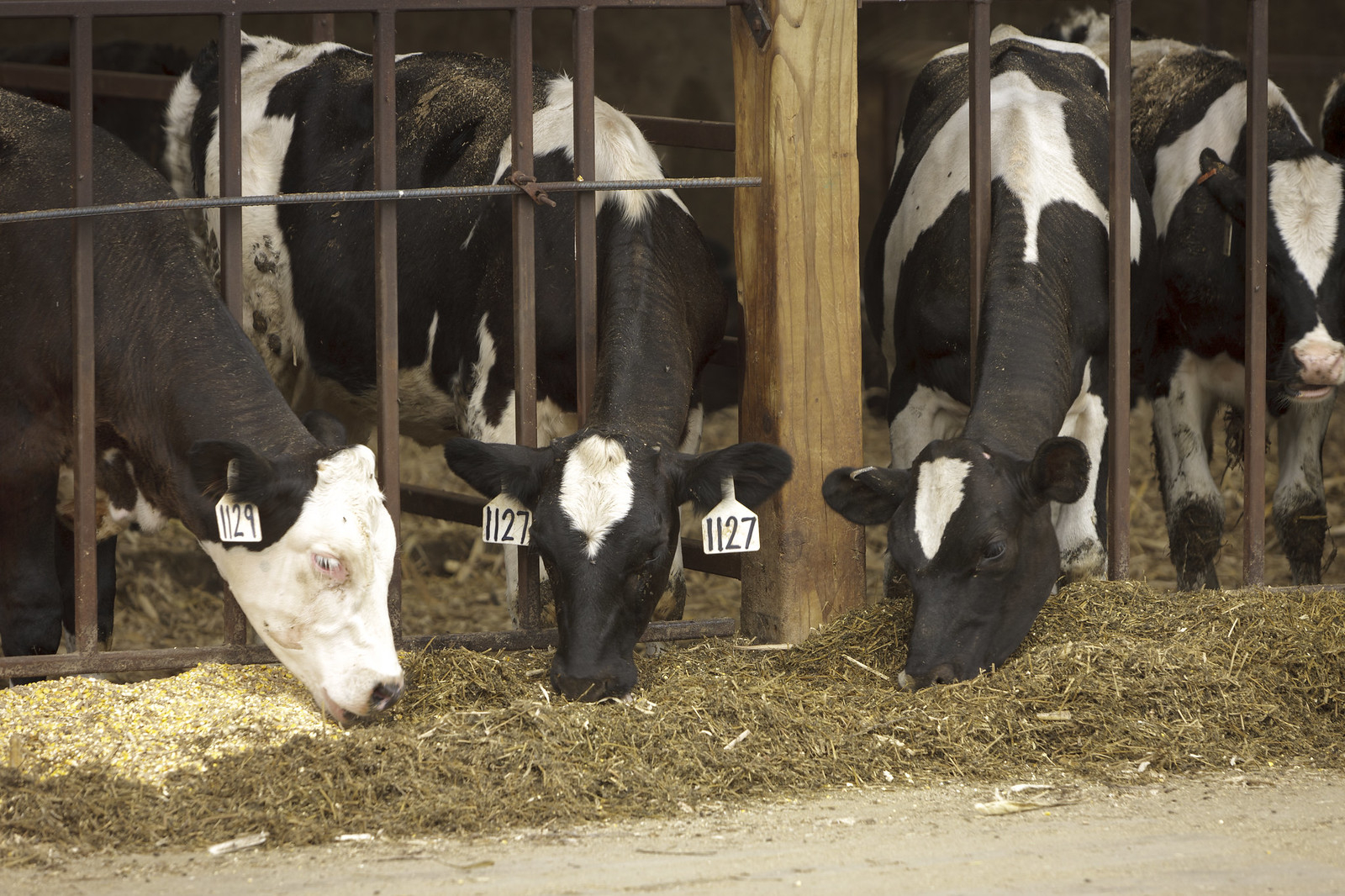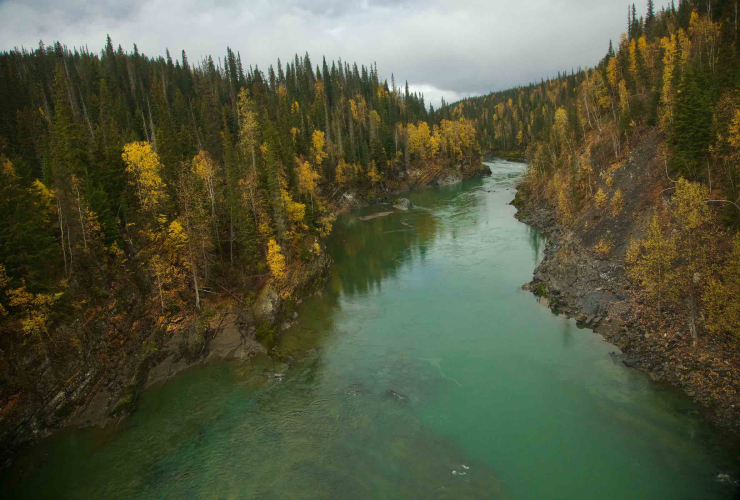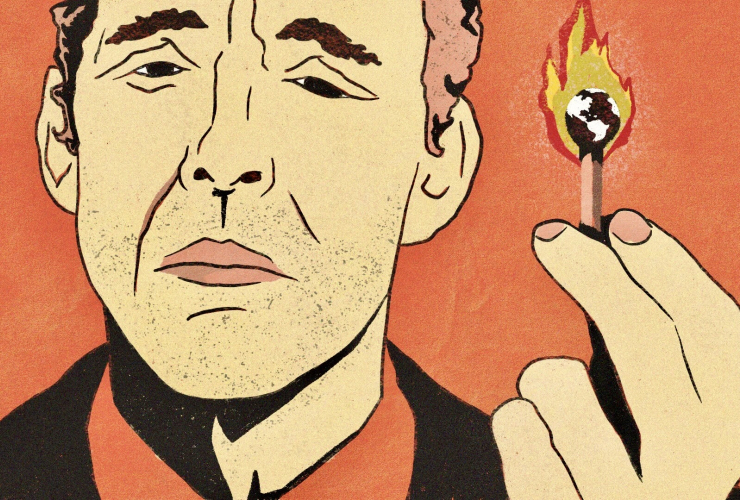This story was originally published by The Guardian and appears here as part of the Climate Desk collaboration.
Emissions from the food system alone will drive the world past 1.5 C of global heating unless high-methane foods are tackled.
Climate-heating emissions from food production, dominated by meat, dairy and rice, will by themselves break the key international target of 1.5 C if left unchecked, a detailed study has shown.
The analysis estimated that if today’s level of food emissions continued, they would result in at least 0.7 C of global heating by the end of the century, on top of the 1 C rise already seen. This means emissions from food alone, ignoring the huge impact of fossil fuels, would push the world past the 1.5 C limit.
The study showed that 75 per cent of this food-related heating was driven by foods that are high sources of methane, like those coming from ruminant livestock such as cattle, and rice paddy fields. However, the scientists said the temperature rise could be cut by 55 per cent by cutting meat consumption in rich countries to medically recommended levels, reducing emissions from livestock and their manure, and using renewable energy in the food system.
Previous studies have shown the huge impact of food production on the environment, particularly meat and dairy, but the new study provides estimates of the temperature rises their emissions could cause. These could be a significant underestimate, however, as the study assumed animal product consumption would remain level in the future but it was projected to rise by 70 per cent by 2050.
“Methane has this really dominant role in driving the warming associated with the food systems,” said Catherine Ivanovich, at Columbia University in the U.S., who led the research. “Sustaining the pattern [of food production] we have today is not consistent with keeping the 1.5 C temperature threshold. That places a lot of urgency on reducing the emissions, especially from the high-methane food groups.
“We have to make the goal of sustaining our global population consistent with a climate-safe future,” she said.
The contribution of global food production to the climate crisis is complex because it involves several important greenhouse gases, all of which have different abilities to trap heat and persist in the atmosphere for different amounts of time. Previous studies have converted the impact of methane and other gases into an equivalent amount of CO2 over 100 years, but this underplayed the high potency of methane over shorter timescales.
The research, published in the journal Nature Climate Change, treated each greenhouse gas separately for 94 key types of food, enabling their impact on climate over time to be better understood. Feeding this emissions data into a widely used climate model showed that the continuation of today’s food production would lead to a rise of 0.7 C by 2100 if global population growth was low, and a 0.9 C rise if population growth was high.
“As we had already reached more than 1 C warming above pre-industrial levels by 2021, this additional warming [from food production] alone is enough to surpass the 1.5 C global warming target,” the scientists concluded. “Our analysis clearly demonstrates that current dietary production and consumption patterns are incompatible with sustaining a growing population while pursuing a secure climate future.”
Food-related temperature rise could be curbed, the researchers said. If people adopted the healthy diet recommended by Harvard Medical School, which allows a single serving of red meat a week, the rise could be cut by 0.2 C. Such a diet would mean a big cut in meat eating in rich nations but could mean an increase in some poorer countries.
Cutting methane emissions from cattle using feed additives and better management of manure could avoid another 0.2 C, the researchers said, while switching to green energy in the food system would cut 0.15 C. Ivanovich said the emissions reductions options included in the study were those possible today but that future technological advances might be able to reduce emissions further.
“We already know that livestock production has a disproportionate contribution to climate change — even using traditional metrics, in 2021 we showed that 57 per cent of emissions from the food system arise from animal agriculture,” said Prof. Pete Smith at the University of Aberdeen. “This very neat study uses a simple climate model to show the disproportionate impact of methane emissions from agriculture on temperature increases, and throws light on the importance of reducing methane emissions from the food system.”
Only a third of the world’s countries have included policies to cut emissions from agriculture in the climate plans they have submitted under the UN Paris Agreement. The researchers said their work was aimed at increasing the understanding of the impact of global food consumption on future global heating. Ivanovich also said policies to cut emissions had to protect access to food and livelihoods for vulnerable populations.
All right, well, we can do
All right, well, we can do something about the meat; I'm not looking forward to eating less beef, but it's do-able. And that stuff with feeding ruminants certain seaweeds seems weirdly promising, so there's that.
And we can do something about all the transportation and tractors and stuff--electrify that, great.
And we can reform farming practices to sequester more carbon in the soil and stuff. That would also help with emissions from manure I suspect; you put the manure in the soil instead of putting in chemical fertilizers, then the manure's substance is going into the soil instead of turning into methane and stuff. Don't quote me on that, I don't know if that's how it works, but maybe anyway.
But what the hell do we do about rice paddies? That's a serious staple food, not a frill, and it's a deeply rooted traditional food thing, not a weird high tech perversion of agriculture. So it's hard to shift and it's part of what we think of as the good stuff, not the bad stuff. Gonna have to do some serious research into how to do rice paddies without emissions.
The study the article is
The study the article is describing suggests that changing rice production methods could decrease emissions by 50%, but doesn't specify how that would be done. It also suggests that decarbonizing the energy sector would reduce global food consumption emissions by 17% - and reducing food waste is important too.
This is all good, but we shouldn't be distracted from the fact that it won't matter if we keep digging up and burning fossil fuels.
A lot of humans would be willing to shift their diets if they thought there was a reason to. It's tragic that the Liberals and NDP think it's OK to build new pipelines during a climate emergency, sending everyone a message that there's really no problem.






Comments